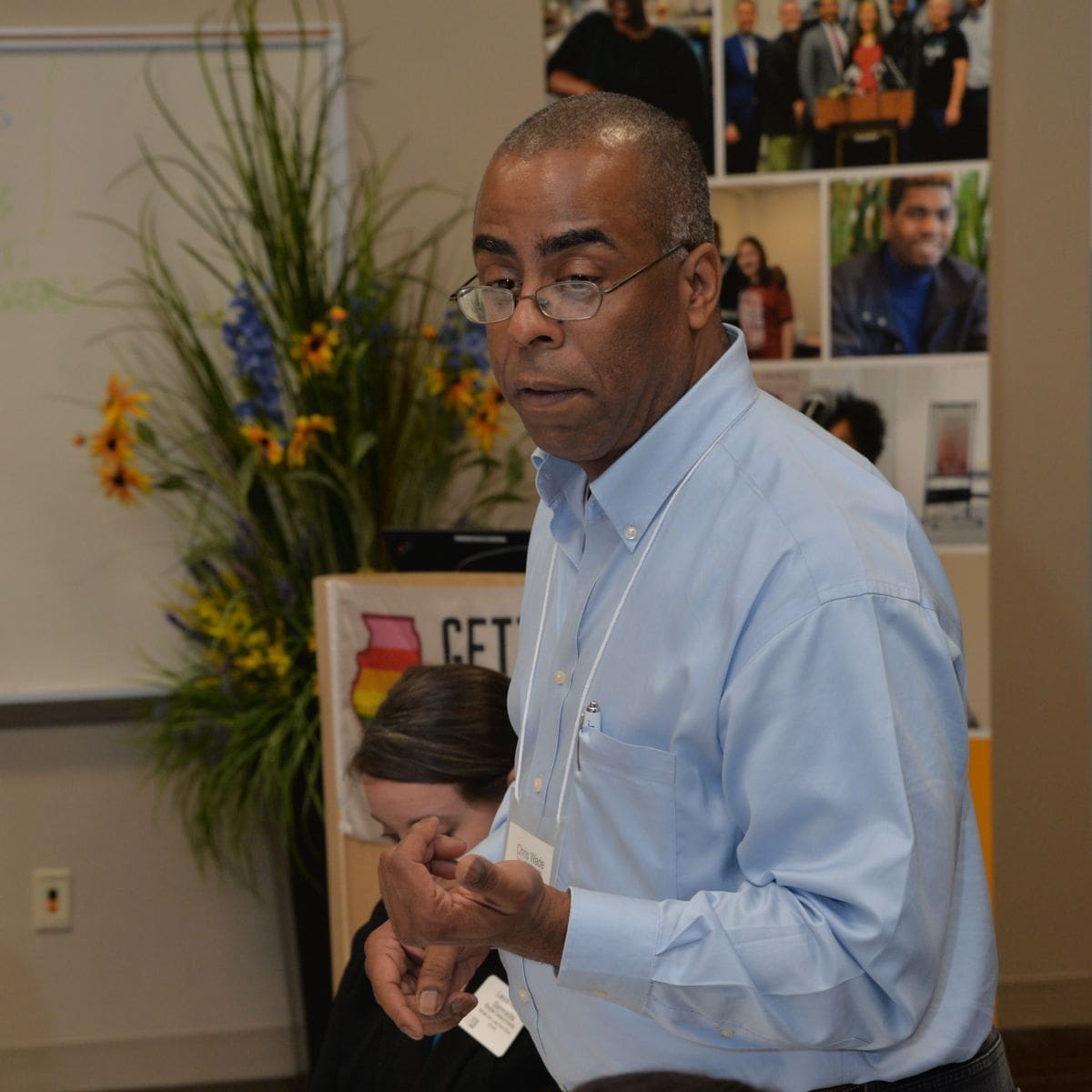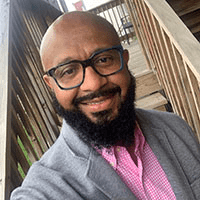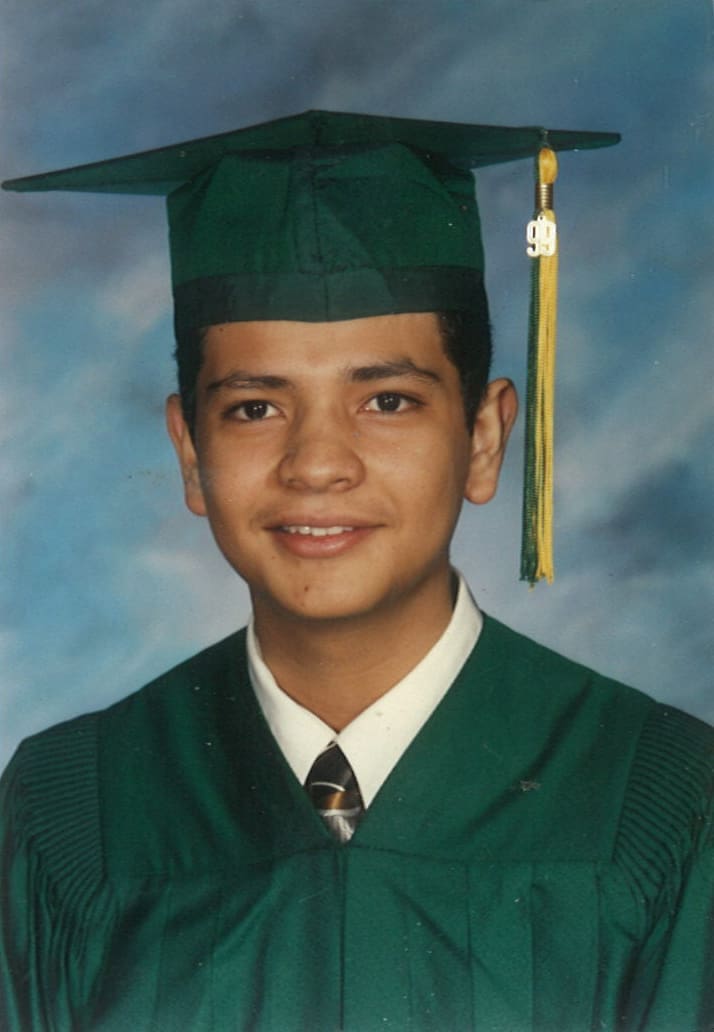 Chris Wade is more than just your average HIV advocate.
Chris Wade is more than just your average HIV advocate.
His longstanding work and organizing in downstate Illinois contribute to education and advocacy for the rights of people living with HIV. He attended the 2018 HIV is Not a Crime National Training Academy (HINAC 3) back in June in Indianapolis, Ind., which trained advocates from all over the nation to talk about the criminalization of people living with HIV. Chris shared his experience with us.
What was your experience attending HINAC 3?
From the beginning to the end, it was an amazing experience to be there. It’s always great to get around other people who are also living with HIV on a national level, but it’s even better when we’re connecting around a specific topic. The comradery really re-invigorates me.
Ending HIV criminalization has always been dear to my heart. It can happen to anybody at any point in time. So, the fact that we’re looking at modernization and repeal of these HIV laws, the intersections happening within intracommunity spaces experienced by people of color and those living with trans experiences. It’s just so important.
I also just love coming here for comradery, the opportunities to network with folks from out of state, establishing new relationships and tackling new stuff that hits in the moment.
Did you run into any challenges while attending HINAC 3?
I think the challenges really are, “How do we collectively have strategy that we can all get behind and be unified around?”
HIV criminalization was initially a federal issue. I think we, as advocates, are largely responsible for shaping the future of these laws — but it’s mostly on the federal government. Had they not created these laws initially, we would not be in the state of where we are today.
What was your day-to-day like for HINAC 3?
Each day was very different than the next, which I really enjoyed! Each morning, we gathered for breakfast and would attend the opening plenary of the day. Speakers from Colombia, Canada, Mexico, and all over came to talk about their HIV criminalization experiences ranging from immigration, sex work and the military. There were some newer, younger leaders that I spoke with that made me proud and offered me chances to encourage and affirm their work.
It was fun running into folks I’ve known for years, along with meeting new people and offering them some guidance, hope and nurturing to some of the newly diagnosed or new attendees. This is my second conference, and I really enjoyed myself.
The Black United Leadership Institute (BULI) group was always great to be around to connect, and uplift national work from Black-identified HIV advocates. They held a pre-conference before to train and encourage capacity-building on a national scale, which is a great addition from years past.
I appreciate spaces where I can see where people are at with their local advocacy efforts, and experience diverse representation.
How do you feel like you’ll take back the knowledge and experience gained at HINAC 3?
I want to go back to my local community and document their needs for HIV criminalization support. From that, I want to connect with partners and begin creating state-wide engagement strategies that may work to evolve these laws.
I appreciated the time HINAC 3 built out for advocates from each state to come together and strategize concrete steps to eliminate bad HIV laws. Illinois attendees, including myself, all sat around a table and talked about next steps and coalition-building incorporating information we heard from advocacy groups from places like California and North Carolina.
With more education and awareness targeting the community and state legislators, I think we can stop the unfair criminalization of people living with HIV. I think we’re starting to see Illinois advocates are investing in efforts to stop these discriminatory laws by bringing local community partners and individuals to the table.
What has your personal experience been with HIV criminalization laws?
Well, I’m currently the Director of Prevention Services at Central Illinois FRIENDS of PWA. We confirmed an allegation had been made in a local newspaper in my hometown of Peoria. We responded with a Letter to the Editor about the article to get it in the public eye how wrong it was.
The public health department and our agency jumped on it to really educate folks about modes of transmission, PrEP, and other relevant information. Some of the information that was put in the newspaper and other media outlets is stigmatizing and just diminishes all the work that we do.
Is there anything else you’d want people to know about this conference?
If you have the chance come to a HINAC, come to a HINAC. It’s a unique opportunity. You’ve got a mix of subject matter experts, advocates, policy makers, state representatives, and a lot of what I would call “HIV icons”.
Historically, you’ve got people who’ve been doing this work for a long time and been in this game a long time. And there’s a lot to learn from this model, but I keep finding that there’s still a lot of work we must do. We need more young and not-so-young folks to help shape this model to best support people living with HIV into positions of empowerment.
Want to get involved and learn more about Illinois’ efforts to end HIV criminalization? Contact Coleman Goode ([email protected]) for more information.


